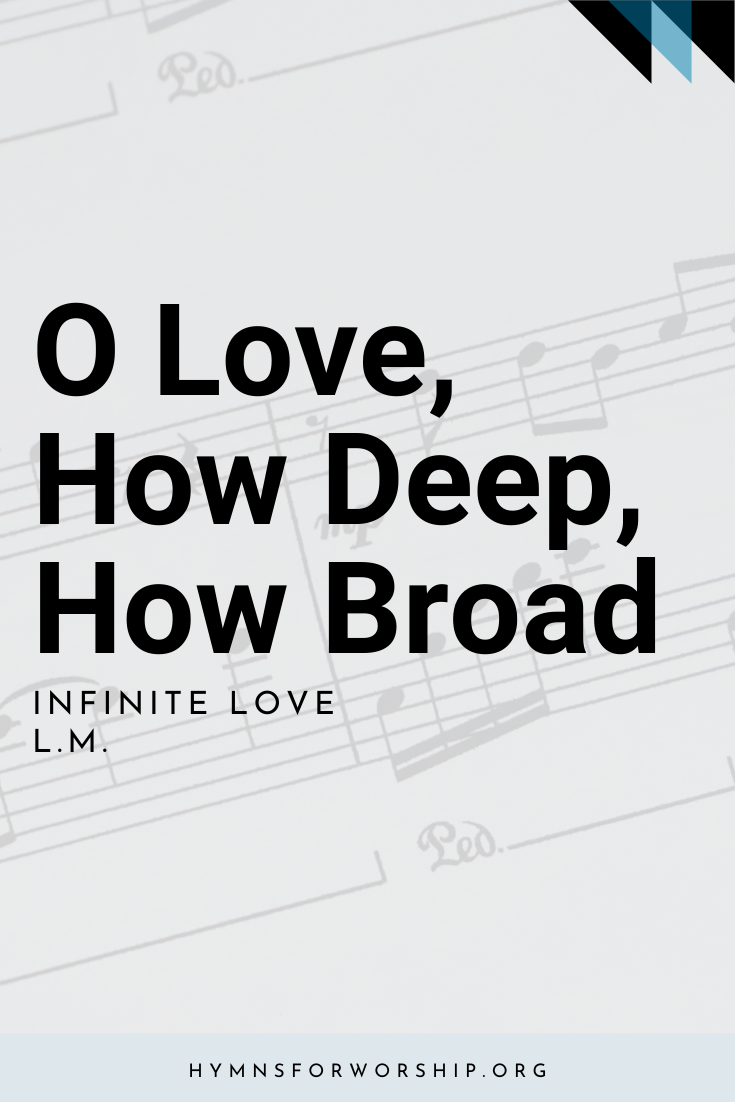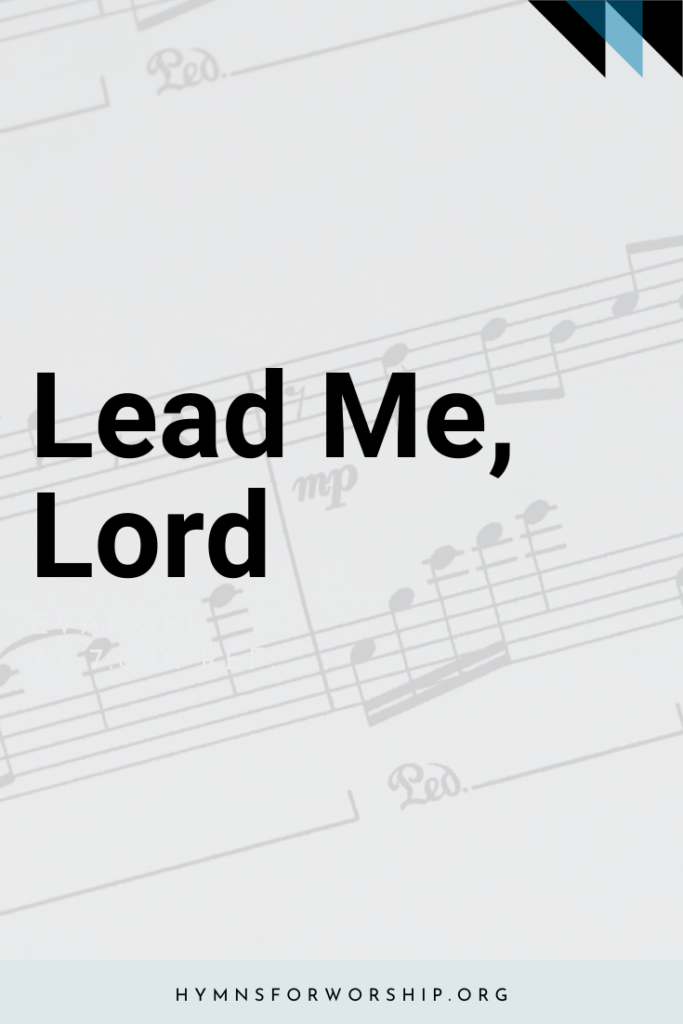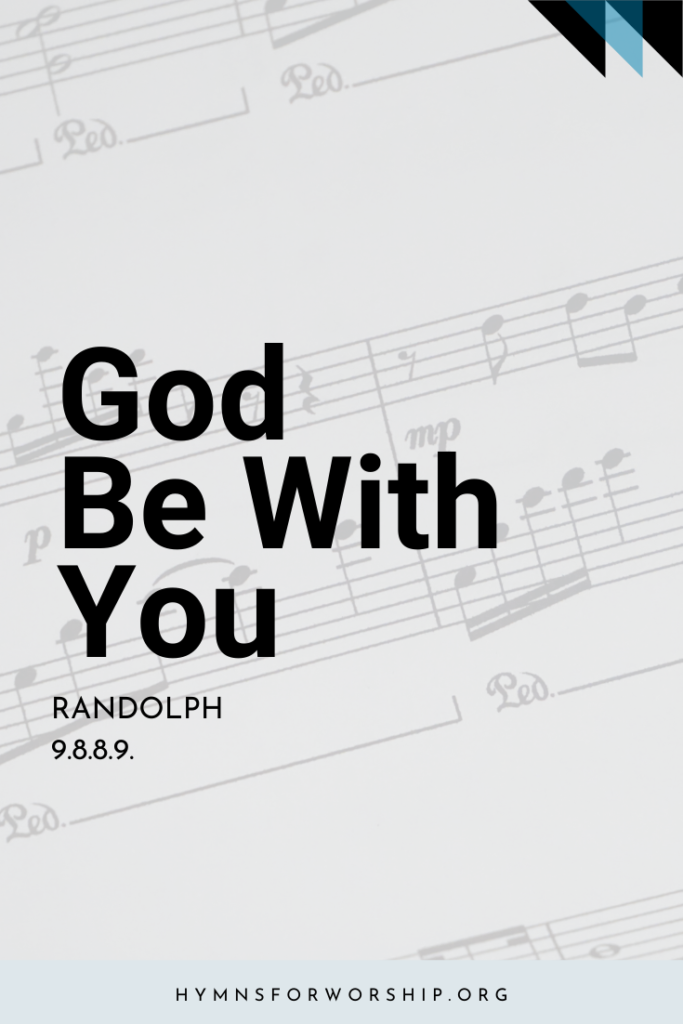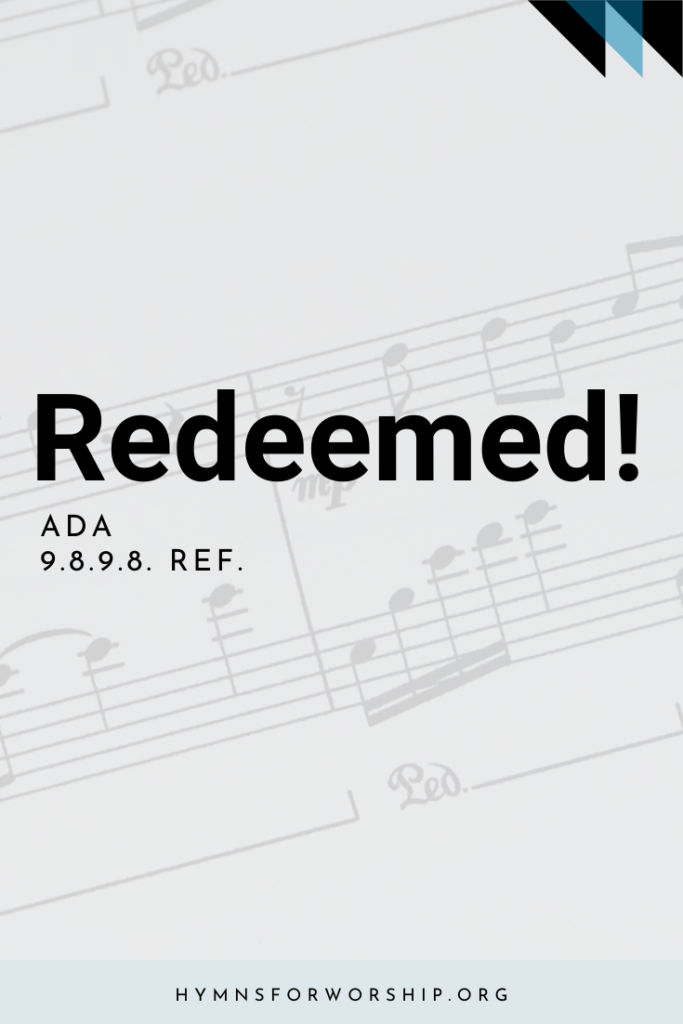JESUS CHRIST >> Life & Ministry
SDAH 148
O love, how deep, how broad, how high,
Beyond all thought and fantasy,
That God, the Son of God, should take
Our mortal form for mortal’s sake!
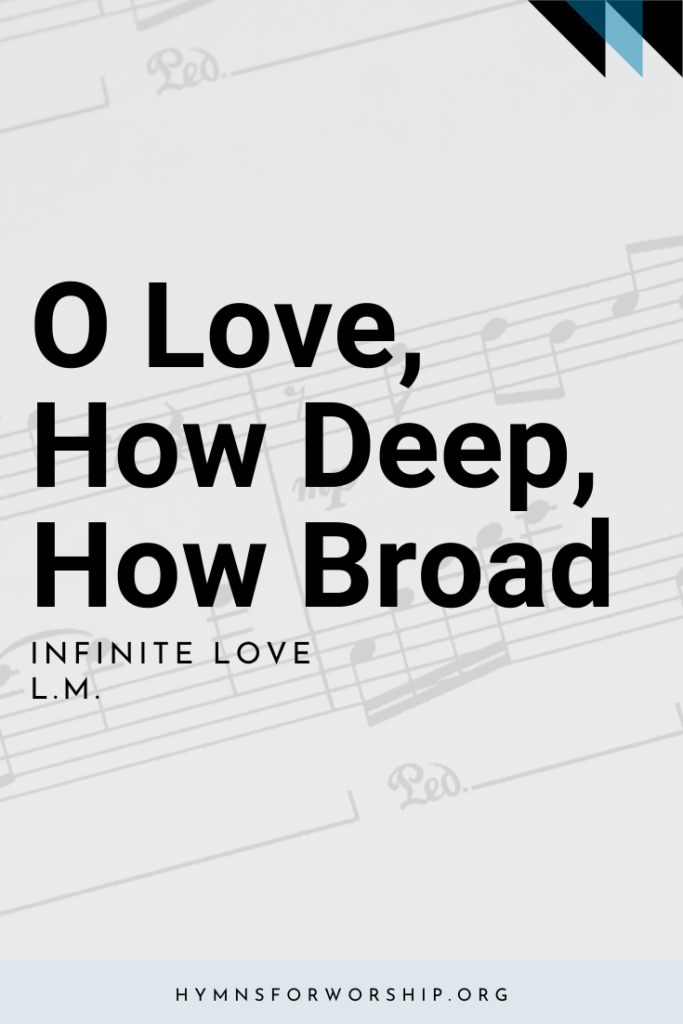

Text
1
O love, how deep, how broad, how high,
Beyond all thought and fantasy,
That God, the Son of God, should take
Our mortal form for mortal’s sake!
2
For us baptized, for us He bore
His holy fast and hungered sore;
For us temptation sharp He knew;
For us the tempter overthrew.
3
For us by wickedness betrayed,
For us, in crown of thorns arrayed,
He bore the shameful cross and death;
For us He gave His dying breath.
4
For us He rose from death again,
For us He went on high to reign;
For us He sent His Spirit here
To guide, to strengthen, and to cheer.
5
All glory to our Lord and God
For love so deep, so high, so broad;
The Trinity whom we adore
Forevermore and forevermore.

Hymn Info
Biblical Reference
(a) Eph 3:18, 19 (b) Luke 4:2 (c) John 19:2, 13; 16:7 (d) Luke 24:6
Author
Attr. to Thomas A. Kempis (1380-1471)
Translator
Benjamin Webb (1820-1885) alt.
Copyright
Music copyright 1984 by James Bingham
Hymn Tune
INFINITE LOVE
Metrical Number
L.M.
Composer
James Bingham (1945-)
Year Composed
1984
Alternate Tune
DEUS TUORUM MILITUM, SDAH 404
Theme
LIFE & MINISTRY OF JESUS
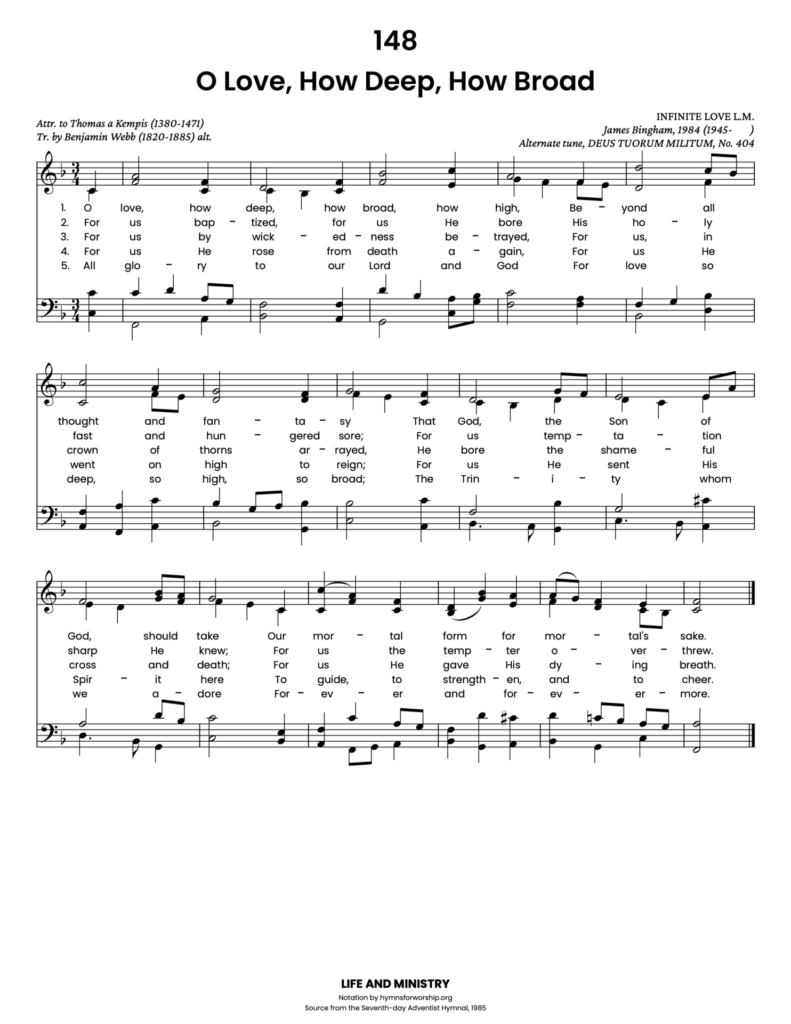
Get the hymn sheet in other keys here
Notes
Get to know the hymns a little deeper with the SDA Hymnal Companion. Use our song leader’s notes to engage your congregation in singing with understanding. Even better, involve kids in learning this hymn with our homeschooling materials.
This is a translation of four stanzas of Apparuit benignitas (Kindness Appeared), a hymn of 23 stanzas on the life of Christ, found in a fifteenth-century manuscript. Because the style of handwriting is similar to that of Thomas à Kempis, the attribution has been made to him. Stanza five is a doxology added by the editors of Hymns Ancient and Modern, 1860, replacing the one Webb translated from the lines of the original hymn. It is similar in some parts to the Nicene Creed, and incorporates many Scripture texts. Webb’s translation was made for the Hymnal Noted, 1851, and has been somewhat altered by editors since that time.
Thomas à Kempis was born c. 1380 at Kempen, Germany, to a family named Hamerken. His father was a peasant and his mother kept a school for the younger children of Kempen. At age 12 he entered a poor-scholars’ house connected to the Brethren of the Common Life at Deventer, Holland, a lay fellowship devoted to Christian service according to Christ’s example. After six years Thomas was received as one of the Brethren, and known as Thomas à Kempis (Thomas from Kempen). Going to the religious house of Mount St. Agnes, near Zwolle, Holland, he was ordained a priest in 1413. Most of his
time was spent in copying devotional works and writing a chronicle of the monastery of St. Agnes, tracts, and hymns. He is generally given the credit for writing the famous Imitatio Christi (Imitation of Christ). It was among the earliest books printed, and has been translated into more languages than any other book except the Bible. He died in 1471.
Benjamin Webb was born in Addle Hill, very near St. Paul’s Cathedral, London, on November 28, 1819. He was educated at St. Paul’s School and Trinity College, Cambridge, and was ordained into the Anglican ministry. He served as assistant in three parishes before becoming curate of Sheen in Staffordshire. In 1862 he became vicar of St. Andrews, Wells Street, London, where composer Joseph Barnby (see Biographies) was organist and choirmaster. This church was famous for its excellent music. Webb’s final post was as prebendary at St. Paul’s Cathedral. He assisted in editing the Hymnal Noted, 1851, and The Hymnary, 1872, and wrote the text for a number of anthems. He was one of the founders of the Ecclesiological Society and edited their official organ for 26 years. He died at Marylebone, London, on November 27, 1885, one day before his sixty-sixth birthday. This is one of the texts sent out by the SDAH Committee to some 30 SDA composers, asking for new tunes. Out of several submitted, INFINITE LOVE was chosen. James Bingham (1945- ; see SDAH 54) gives this suggestion: “A somewhat conventional hymn tune, but inspired by the extreme pathos of the text. The hymn must not be hurried; it is reflective and awesome. The various ornamental notes will not sound rushed if this is kept in mind. Bingham is also the composer of SDAH 54, PHOS HILARON; SDAH 81,JANELLE; and SDAH 102,YOU YANGS.

